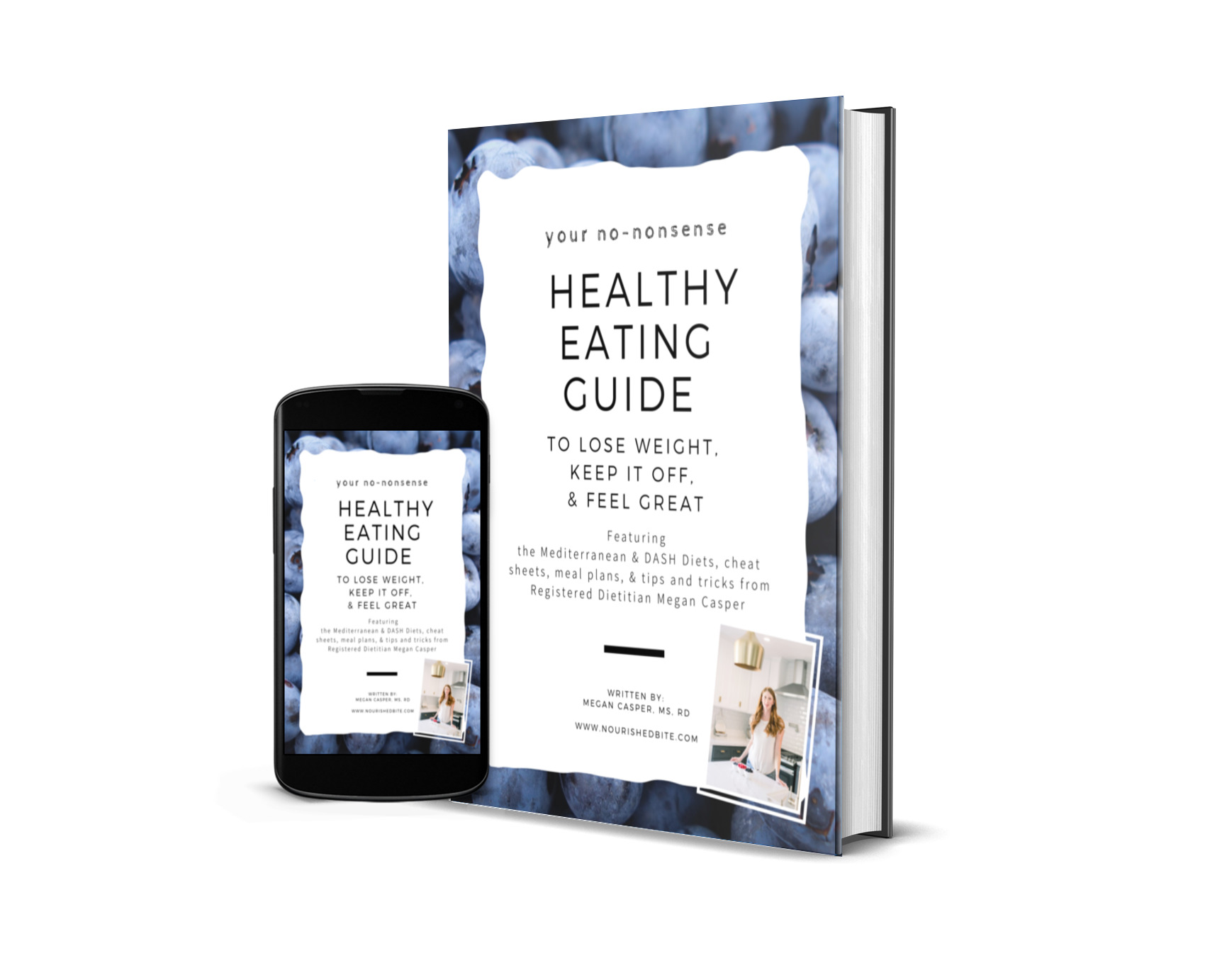Should I Go on a Fast?
/You may have noticed, one of the biggest dieting trends these days is… not eating! Intermittent fasting is buzzing around, and you may have wondered if you’d benefit from this style. If you’d like to find out if fasting is right for you, read on!
What are the main types of intermittent fasting?
There are many different types of intermittent fasting (IF), and they range from easy (you may already be doing it..) to a bit extreme (in my opinion, anyway.)
Here are the main types:
Overnight fasting is an easier form of time-restricted fasting, where a person doesn’t eat for a window of 12 hours. For example, a person may eat breakfast around 7 am and finish dinner by 7 pm.
Time-restricted fasting involves choosing a window of time when food isn’t consumed. A popular time-restricted pattern is the 16:8 method which involves fasting for about 16 hours and eating two to three meals during the remaining eight hour window. Water, coffee and other non-caloric beverages are allowed during the fasting window.
Alternate-day fasting involves fasting every other day. Some people who follow this diet will consume about 500 calories on fasting days, while some choose to have no food.
On the 5:2 diet, regular meals are consumed 5 days of the week and calories are restricted to about 500 calories the other two days.
Is intermittent fasting a good way to lose weight?
I typically don’t recommend fasting as a long term weight loss solution, since it leaves most starving and can be unsustainable. In fact, one study found that the dropout rate was way higher for IF than typical low-cal diets.
However, new fasting methods like the 16:8 method can help aid in weight loss while being less restrictive than a low-calorie diet. One recent study found that there was no difference between the health benefits of conventional dieting and fasting, meaning intermittent fasting may be a good match for people who have a hard time following reduced-calorie diet plans.
Is intermittent fasting good for your health?
It seems to be! Besides helping with weight loss, there has been some research to show that intermittent fasting can lower blood pressure, improve metabolism, and may even help reduce inflammation. IF has also been linked to reduced rates of cancer, parkinson's disease, alzheimer's disease and more. While a lot of new studies involving intermittent fasting have been coming out, many have also been done on rodents or in small groups of human, so more research is needed.
What are the downsides to intermittent fasting?
Fasting can cause extreme hunger, fatigue, headaches, and a low blood sugar. Fasting can also lower athletic performance, making it harder to reap the benefits of working out.
Going on a super low calorie diet, whether it be a fast or fad diet, causes you to first lose muscle and water weight. People typically think this means the diet is working, but once they go back to their normal diet their metabolism will have slowed down and they usually gain the weight back, and then some. In fact, 41 % of dieters regain more weight back than they lost. Some studies have shown that there is less muscle loss during IF than typical low-cal diets, but I still would recommend avoiding extreme fasts.
What else should I know about Intermittent Fasting?
My general recommendation is that people should follow their hunger cues and eat when they’re hungry, and a restrictive schedule where you’re watching the clock simply isn’t for everyone. If you’re thinking “eeeeh, yeah, that does NOT sound good to me”, you should think about other ways you can improve your diet and health, like increasing whole grains, swapping in healthy fats, and increasing servings fruits and vegetables. If you need more ideas check out these goals here.
That being said, intermittent fasting does work for some people and there are some really intriguing studies being done.
One of the benefits of intermittent fasting is that it doesn’t specify macronutrients, making it theoretically easier to follow. This benefit also leads to a common pitfall of IF - that people care more about the WHEN instead of the what, and make poor choices on a hungry stomach.
If you’d like to try out a fasting diet, I would recommend you start by using the least restrictive form (just overnight) and seeing how you do, and perhaps building from there.
Meal prepping will be your friend! Always make sure you have healthy snacks and meals ready to go so you don’t grab the greasiest thing you can reach “because you deserve it” when the time is up.
And if you feel lightheaded or weak, it’s okay to give yourself a break and have a small healthy snack. Remember you’re doing this for you!



